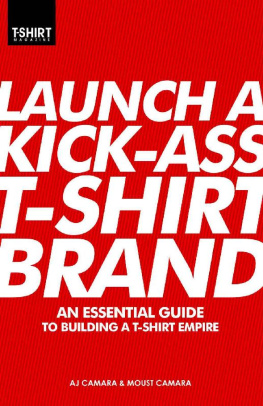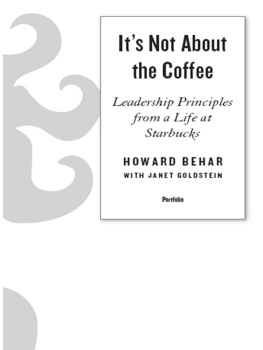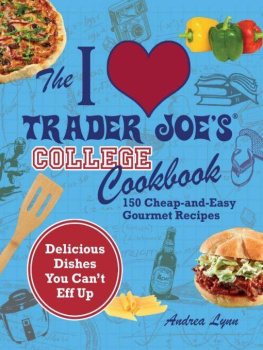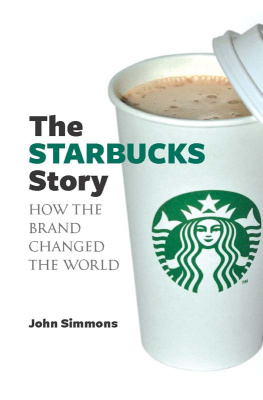Hawthorne - Ethical chic: the inside story of the companies we think we love
Here you can read online Hawthorne - Ethical chic: the inside story of the companies we think we love full text of the book (entire story) in english for free. Download pdf and epub, get meaning, cover and reviews about this ebook. City: Boston;United States, year: 2012, publisher: Beacon Press, genre: Politics. Description of the work, (preface) as well as reviews are available. Best literature library LitArk.com created for fans of good reading and offers a wide selection of genres:
Romance novel
Science fiction
Adventure
Detective
Science
History
Home and family
Prose
Art
Politics
Computer
Non-fiction
Religion
Business
Children
Humor
Choose a favorite category and find really read worthwhile books. Enjoy immersion in the world of imagination, feel the emotions of the characters or learn something new for yourself, make an fascinating discovery.

Ethical chic: the inside story of the companies we think we love: summary, description and annotation
We offer to read an annotation, description, summary or preface (depends on what the author of the book "Ethical chic: the inside story of the companies we think we love" wrote himself). If you haven't found the necessary information about the book — write in the comments, we will try to find it.
Hawthorne: author's other books
Who wrote Ethical chic: the inside story of the companies we think we love? Find out the surname, the name of the author of the book and a list of all author's works by series.
Ethical chic: the inside story of the companies we think we love — read online for free the complete book (whole text) full work
Below is the text of the book, divided by pages. System saving the place of the last page read, allows you to conveniently read the book "Ethical chic: the inside story of the companies we think we love" online for free, without having to search again every time where you left off. Put a bookmark, and you can go to the page where you finished reading at any time.
Font size:
Interval:
Bookmark:
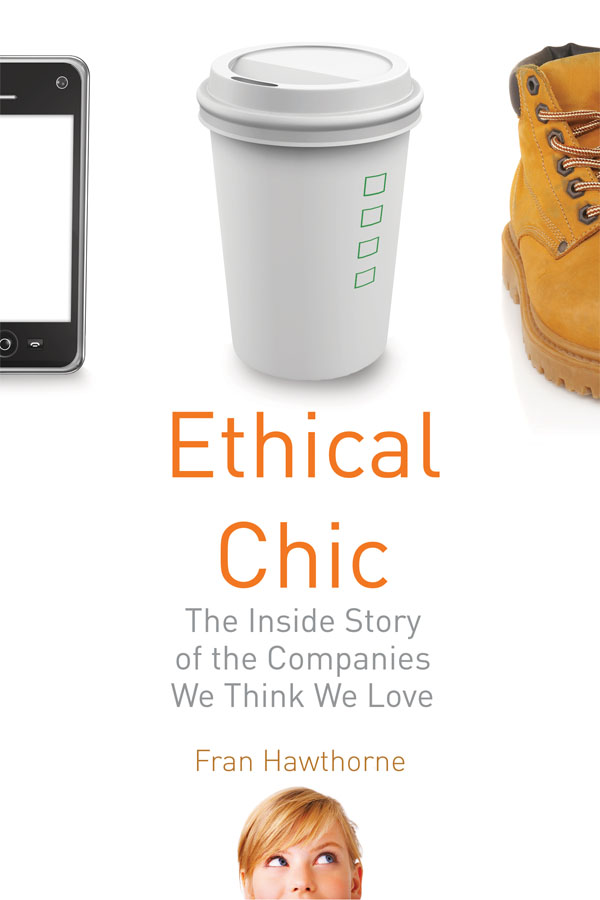
Ethical Chic
The Inside Story of the Companies We Think We Love
Fran Hawthorne
Beacon Press, Boston
To my father, Edward Hawthorne
Contents
Authors Note
Business may thrive on change and innovation, but too many changes sure make it hard to write a book about business. Of the six companies profiled in this book, three announced major and abrupt new developments within the last few months of my research and writing, and a fourth tossed in a small complication:
Three days before I was due to hand in the manuscript of this book to my editor, American Apparel revealed that it might file for bankruptcy.
Two months later, just as I was finishing the edit, Timberland was acquired by VF Corporation.
Two months after that, in the midst of yet another round of reviews, Apples legendary chief executive, Steve Jobs, stepped down. And barely one month afterward, at the verge of the final edits for this book, Jobs died.
Also, I had known for months that Howard Schultz, Starbuckss chief executive, would be publishing the second volume of his autobiography a couple of weeks before my first deadline, which ultimately required a few updates in my manuscript.
So, who can guess what other surprises these companies may serve up between the day you start reading this book and the day you finish?
Introduction. The Image
Company X is an ideal progressive company. Its products have dramatically challenged conventional thinking while helping people from cerebral palsy patients to schoolkids in Africa to antigovernment protestors in Iran, Tunisia, and Egypt. Its cofounder, a vegetarian, was married in a Buddhist ceremony in Yosemite National Park. Its website posts detailed information about its carbon emissions; moreover, it was the first in its industry to eliminate the most common toxic ingredients. And it has done all this while competing against one of the biggest, most hated companies on Earth. Cutting-edge, creative people wouldnt think of using anyone elses products.
Company Y, on the other hand, is a terrible company for progressives. Its nonunion employees historically labored long hours at the whim of a micromanaging chief executive who changed his mind at the last minute and made impossible demands. Overseas, it uses Chinese sweatshops so dreadful that a dozen workers have committed suicide. It has been slow on environmental issues, acting only after intense prodding by socially responsible mutual funds and a big public campaign from Greenpeace. Actually, its hard to know anything about this company because its so secretive that its press people dont return phone calls.
Of course, Company X and Company Y are the same company. The name: Apple Inc.
In this age of consumer activism, pinpoint marketing, and unlimited and immediate information, we want the impossible: products and producers that will assure us that we are fashionable, and that dont pollute, harm animals, or contain weird chemicals, that run on alternative energy, pay their workers good salaries, recycle their scraps, use natural ingredients, buy from local suppliers, donate generously to charity, donate in particular to their neighborhoods, and dont throw their weight around by lobbying. (Or maybe they should lobby for the right causes?) Why should we pay good money for something that will make us look nerdy, or that will poison the Earth? We dont think were being overly demanding. All were asking for are the kinds of policies we try to follow in our own daily lives, and if we can manage to recycle and avoid animal products, then certainly big companies, with all their clout, can do likewise.
Hard as it is to be so many things to so many consumers, a handful of companies and productslike Apple, Ben & Jerrys ice cream, Converse sneakers, and the grocery store chain Trader Joesseem to have hit that magic bulls-eye, at least for a time. Almost no matter what they do, they maintain an image of being cool, fun, and innovative and, at the same time, an equally strong image as green, politically progressive, and ethical.
As a result, their customers are fiercely loyal. At Macworld, the annual conference for users and vendors of Apple products, held in San Francisco in 2010, I met fans who had traveled at their own expense from as far away as Iowa, Illinois, and Michigan just to meet kindred souls and to ooh and ahh over the newest add-ons. And mind you, this was a gathering without the magical presence of Apples legendary cofounder, Steve Jobs. Meanwhile, Naomi A. Gardberg, an assistant professor at the City University of New Yorks Zicklin School of Business, has friends who will drive thirty miles to get to Trader Joes.
Even during the 20082009 downturn and the weak recovery afterward, BusinessWeek magazine noted in amazement that stressed-out, debt-ridden, mortgage-foreclosed consumers still found spare change (or unused credit lines) for Apple iPads and Starbucks lattes. They would forgo a new car, switch from brand-name to generic toiletries, and pick up shampoo at discount outlets, the magazine said in an August 2010 cover story. But Apple and Starbucks were irreplaceable.
Investors, too, are more willing to cut certain firms a little slack. Some companies have built so much trust that shareholders are less likely to vote against management, explained Laura Berry, executive director of the Interfaith Center on Corporate Responsibility (ICCR), a New York Citybased organization that represents about three hundred religious institutions and is one of the pioneers of the movement for socially responsible investing. In some ways, if shareholders bring a resolution that says, We want you to report more about your environmental sustainability, and Apple says, Were making our best effortsyou should just trust us and dont vote against us, were going to believe them.
In return, more and more business executives are recognizing that ethical-trendy shoppers are a big and growing market. While the desire to be trendy is nothing new, the other factorwhats often called corporate social responsibility, or CSRhas burgeoned more recently.
When Walmart announced plans to run its trucks more efficiently, switch to solar energy at two dozen sites, promote energy-saving compact fluorescent lightbulbs (CFL), use recyclable cardboard cartons, and maybe even install windmills in its parking lots so customers could recharge their hybrid cars, it was clear that the environmental movement, at least, had gone Main Street. Institutional Investor, a trade journal that goes to the upper tier of business and finance, devoted a two-part cover package in November 2010 to socially responsible investinga favorable package. The fortieth anniversary of Earth Day in 2010 has turned into a premier marketing platform for selling a variety of goods and services, like office products, Greek yogurt, and eco-dentistry, the New York Times reported. Even the crusty British weekly the Economist reluctantly succumbed, in a special issue about CSR on January 19, 2008, with the cover headline Just Good Business. It harrumphed, This newspaper has argued that it is often misguided, or worse. But in practice few big companies can now afford to ignore it.
Thus, consumer-oriented businesses are trying to find the words, logo, and imageand, of course, productsthat will indelibly brand themselves as the Apple or Trader Joes of their industry. Unilever, which markets the chemical-laden Knorr soup mixes, reached out to the organic crowd by acquiring Ben & Jerrys. The Clorox Companywhose chlorine bleach is despised by environmental activists for damaging sewers and aquatic lifemade a dual effort: It bought the homespun cosmetics company Burts Bees, founded by a bearded guy who lived in a converted turkey coop in Maine. Plus, it has a new line of plant-based, green household cleaning products that touts an endorsement from the Sierra Club. McDonalds has recast some of its outlets with chocolate-colored seats and muted beige walls to look like Starbucks. (Sort of.)
Font size:
Interval:
Bookmark:
Similar books «Ethical chic: the inside story of the companies we think we love»
Look at similar books to Ethical chic: the inside story of the companies we think we love. We have selected literature similar in name and meaning in the hope of providing readers with more options to find new, interesting, not yet read works.
Discussion, reviews of the book Ethical chic: the inside story of the companies we think we love and just readers' own opinions. Leave your comments, write what you think about the work, its meaning or the main characters. Specify what exactly you liked and what you didn't like, and why you think so.


